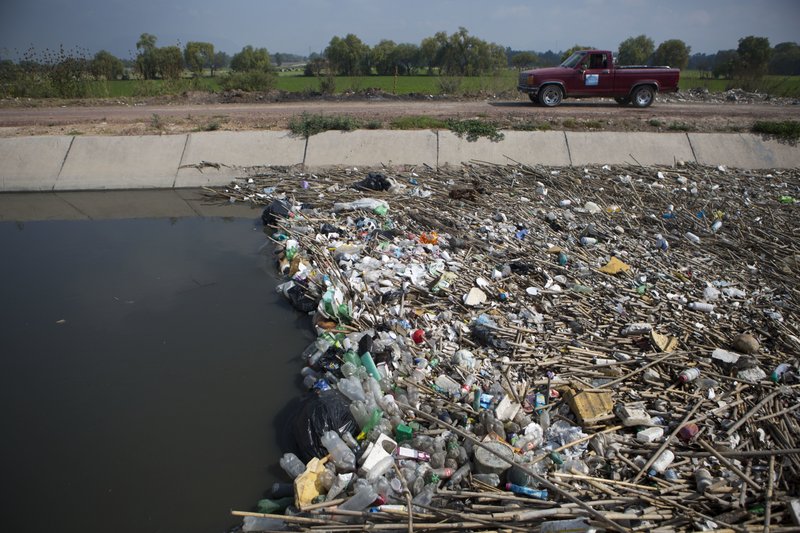NAFTA talks have ignored environmental concerns
Sierra Club | 16 May 2018
NAFTA talks have ignored environmental concerns
As leading environmental organizations, we have called for a fundamentally different approach to trade – one that prioritizes the needs of people and planet. The North American Free Trade Agreement (NAFTA) has harmed many working families, immigrants, Indigenous communities, and communities of color across borders by contributing to lost jobs, stagnant wages, lost ways of life, and air, water, and climate pollution.
Over one year ago – before the current NAFTA talks began – many of our organizations called for essential changes to transform NAFTA from a polluter-friendly deal into one that supports our communities. These changes are needed to ensure that the agreement helps – not hinders – the efforts of the United States, Canada, and Mexico to meet the challenges we all face in the 21st century.
Unfortunately, the closed-door NAFTA talks have excluded most environmental groups and appear to have ignored most of our concerns. There is a real risk of a deal that further exacerbates pollution and climate change.
We will oppose a NAFTA 2.0 deal if it undermines rather than supports environmental protection and a just transition to a clean energy economy. We cannot shift to a clean energy future if a polluter-friendly trade deal tethers us to the policies of the past. Today’s talks must dramatically change course to meet the baseline environmental standards we outlined over a year ago. These standards fall into three broad categories:
1. Stop the offshoring of pollution and jobs: Corporations have used NAFTA to evade U.S. environmental policies by offshoring jobs and toxic pollution to Mexico, where environmental standards are weaker. This pollution offshoring loophole harms workers and communities across borders. To close NAFTA’s pollution offshoring loophole, we have called for a rewritten deal to require each country to adopt, maintain, and implement robust climate, air and water, conservation, labor, Indigenous rights, and human rights protections, such as policies that fulfil the Paris Climate Agreement and other fundamental international agreements. These binding standards must be enforced via a new, independent enforcement system. We also have called for NAFTA’s replacement to penalize imported goods made with high climate emissions. However, negotiators have reportedly sidelined these proposals. Instead, NAFTA 2.0 could replicate the weak environmental standards of past trade deals while ignoring climate change, allowing corporations to offshore more jobs and pollution to the detriment of communities across borders.
2. Support a clean energy economy, not fossil fuel dependency: The world is moving away from fossil fuels. Yet, NAFTA includes an array of rules that bind North America to fossil fuel dependency. The “proportionality” rule, for example, locks in tar sands oil extraction and fracking in Canada while encouraging expansion of tar sands oil pipelines into the U.S. Another NAFTA rule effectively bars the U.S. government from determining whether gas exports to Mexico or Canada are in the public interest, facilitating increased fracking in the U.S., expansion of cross-border gas pipelines, and growing dependency on climate-polluting gas in Mexico. We have called for such climate-denying rules to be eliminated so as to allow governments to support a just transition to a clean energy economy. Instead, negotiators are reportedly entertaining rules that could make matters worse by restricting – for years to come – Mexico’s ability to curb fracking and offshore drilling.
3. Shield environmental policies from industry interference: NAFTA allows corporations and governments to challenge environmental policies as barriers to trade and investment. For example, the controversial “investor-state dispute settlement” (ISDS) mechanism has allowed corporations to sue the U.S., Canada, and Mexico in unaccountable tribunals over climate and community protections. We have called for the elimination of ISDS, the inclusion of a broad “carve-out” to shield public interest policies from government challenges, and “regulatory cooperation” terms that strengthen – not undermine – climate and environmental protections. While the current plan for NAFTA 2.0 apparently does not include a “carve-out” to protect policies from government challenges, it does include a significant curtailing of ISDS – a testament to the strength of the growing global movement against ISDS. At the same time, negotiators have reportedly agreed to “regulatory cooperation” terms that could give corporate polluters a different way to delay, weaken, or halt new environmental policies. Far from supporting increased climate and environmental protections as we recommended, these terms could require burdensome and industry-dominated processes for forming new regulations, making it more difficult to repair the environmental damage of the Trump administration after Trump leaves office.
To date, the NAFTA talks have ignored nearly all of our proposals for a new deal that supports people over polluters. We cannot afford to lock North America’s communities into another binding, outdated trade pact that denies the reality of climate change, locks in fossil fuel dependency, and gives corporations a free pass to pollute our air and water. Doing so will not benefit Americans, Canadians, or Mexicans in the 21st century. We will oppose any NAFTA 2.0 that puts the interests of polluters over the health of our environment and the needs of our communities.
Signed by:
350.org | Center for Biological Diversity | Center for International Environmental Law Defenders of Wildlife | Earthjustice | Food & Water Watch | Friends of the Earth | Green For All GreenLatinos | Greenpeace USA | League of Conservation Voters | Natural Resources Defense Council Oil Change International | People’s Action | Power Shift Network | Sierra Club | Sunrise Movement






